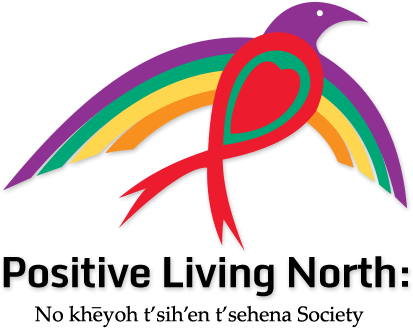Be Informed
Positive Living North wants to see our community members informed and aware of HIV/AIDS/HCV. At all times, we try to provide the most up-to-date information about HIV/AIDS/HCV as provided by the Public Health Agency of Canada, the BC Centre for Disease Control, and from our local Northern Health Authority.
This area of our website also provides resources to the public, including helpful links, research documents and prevention and support materials.
What is HIV?
HIV stands for ‘Human Immunodeficiency Virus’. AIDS stands for ‘Acquired Immunodeficiency Syndrome’, also known as Advanced HIV. HCV stands for Hepatitis C Virus.
HIV is a virus that can make you sick. You can have HIV without knowing it. You may not look or feel sick for years, but you can still pass the virus on to other people.
HIV weakens your immune system, your body’s built-in defense against disease and illness. Without HIV treatment, your immune system can become too weak to fight off serious illnesses. HIV can also damage other parts of your body and eventually, you can become sick with life-threatening infections. This is the most serious stage of HIV infection, called AIDS or Advanced HIV.
There is no cure for HIV, but with proper care and treatment, most people with HIV can avoid getting AIDS and can stay healthy for long periods of time. Anti-HIV drugs have to be taken every day. Although they cannot get rid of HIV, they can keep it under control.
There is no cure for HIV… but there is treatment.
Who Can Get HIV?
Anyone can be infected with HIV. HIV does not discriminate. No matter your age, your sex, your race or ethnic origin, or who you have sex with, you can be at risk for HIV infection. Learn how to protect yourself and others.
How is it Transmitted?
HIV can be transmitted from one person to another through the following five bodily fluids:
- Blood
- Semen (including ‘pre-cum’)
- Vaginal Fluid
- Breast Milk
- Rectal Fluid
HIV can only get passed when one of these fluids from a person with HIV gets into the bloodstream of another person – through broken skin, the opening of the penis or the wet linings of the body, such as the vagina, rectum or foreskin. HIV cannot pass through healthy, unbroken skin.
The two main ways that HIV can get passed between two people is through:
- Unprotected sex (anal, vaginal, and/or oral sex)
- Sharing needles or other equipment to inject drugs (including steroids)
HIV can also be passed by:
- Sharing needles or ink to get a tattoo
- Sharing needles or jewellery to get body piercing
- Sharing acupuncture needles
- Sharing razors or toothbrushes
- A mother to a fetus or baby during pregnancy
HIV cannot be passed by a person living with HIV/AIDS through:
- Talking, touching, shaking hands, working or eating
- Hugs or kisses
- Coughs or sneezes
- Swimming pools
- Toilet seats or water fountains
- Bed sheets or towels
- Forks, spoons, cups or food
- Insects or animals
HIV can pass from a woman to her baby:
- during pregnancy
- at birth
- through breast-feeding
If you are HIV positive and pregnant, proper HIV treatment and care can reduce the risk of your child being HIV-positive to less than 2%. If you are pregnant or thinking about getting pregnant, get tested for HIV. If you are HIV-positive, with proper treatment you can have a healthy pregnancy and healthy baby.
How Can I Protect Myself?
- Using latex or polyurethane condoms whenever you are engaging in sexual activity; use a new one every time.
- Getting tested with all new partners prior to any sexual activities.
- Limiting the number of sexual partners you have, as having many sexual partners increases your risk.
- Not sharing needles, syringes, drug use equipment, razors, toothbrushes, or sex toys.
- Ensuring that tattooing and piercing equipment is sterile.
